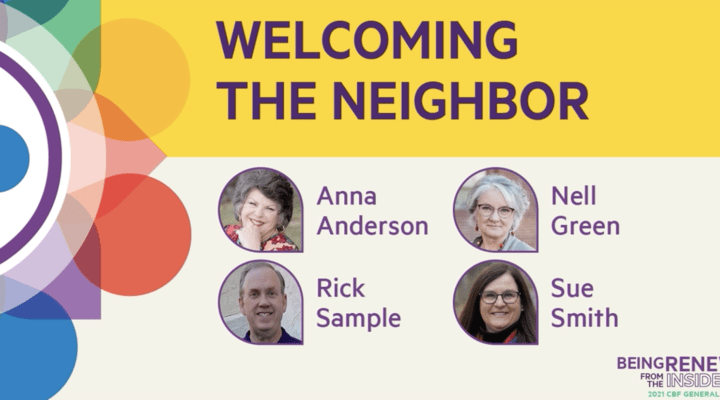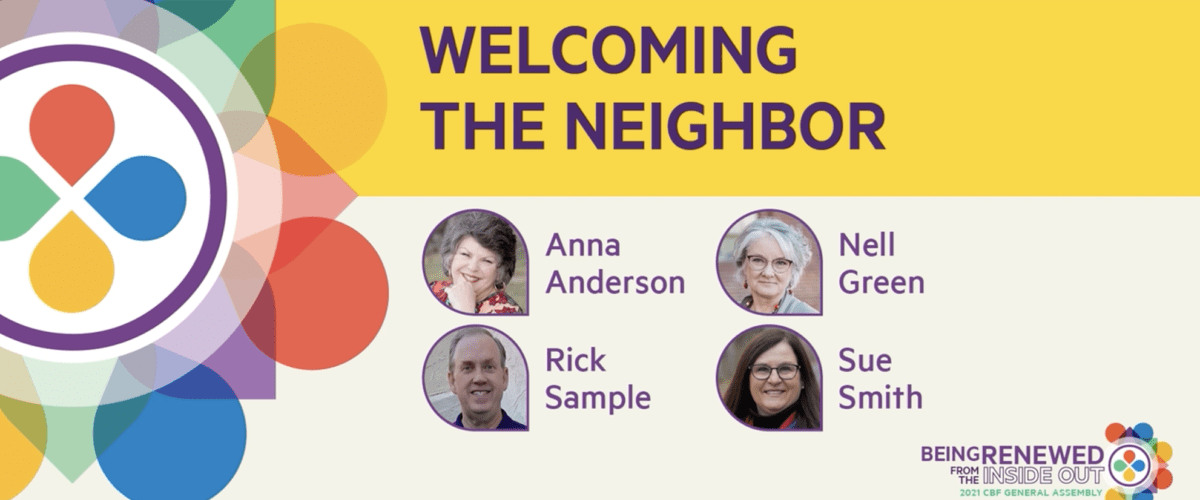Cooperative Baptist Fellowship field personnel across the U.S. are preparing partner networks and local congregations for the expected arrival of Afghan refugees attempting to flee as the withdrawal of American forces continues.
“We expect a huge influx all over the United States, and other field personnel and churches are preparing to welcome these families,” panelist Rick Sample said during “Welcoming the Neighbor,” an Aug. 26 workshop related to CBF’s 2021 General Assembly. The workshop was moderated by Javier Perez, director of global missions programs and impact for CBF.
Thousands of Afghan allies, including those who worked as interpreters for Allied forces during the almost 20-year war, already have been evacuated to the United States and other nations, and more are on the way. President Joe Biden estimated that as many as 65,000 Afghan allies and their families could be evacuated.
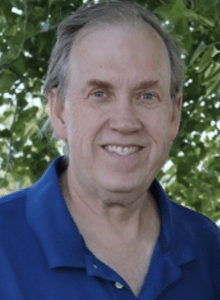
Rick Sample
The uncertainty about numbers and resettlement locations means faith-based groups across the country must be ready to welcome these refugees, said Sample, CBF field personnel serving immigrants, refugees and other internationals in the San Francisco area, which already is home to a sizeable Afghan community.
“I have been in contact with local Afghan leaders who are working hard to make arrangements,” he said. “It’s hard to know when and where the (Afghan) refugees will be arriving.”
Panelist Nell Green said it’s likely the refugees now escaping the Taliban takeover will be resettled in cities already home to Afghan populations.
How to help
Churches that want to help should contact the nearest refugee resettlement agencies to determine the level of local need, said Green, a 35-year missions veteran who now advocates for CBF’s Offering for Global Missions. “And I would say partner with your CBF field personnel to help them in their work.”
Or churches wanting to help should contact refugee ministry experts like Marc and Kim Wyatt, founders of Welcome House in the Research Triangle of North Carolina, said panelist Sue Smith, field personnel among Latino immigrants in Fredericksburg, Va. The Wyatts, who are CBF field personnel, have been seeking additional housing for the anticipated arrival of Afghan refugees.
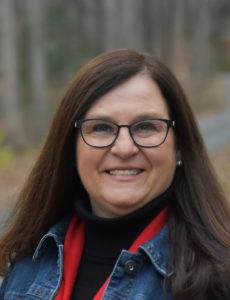
Sue Smith
Smith also recommended churches be ready by making contingency plans to help Afghan refugees. “They may not come … but lay the groundwork to receive them with open arms,” Smith said.
Needed services for Afghan and other refugees and immigrants include accompanying them to appointments, delivering food, bottled water and providing furniture and other necessities. “Anything you can do to show welcome sends a strong message,” Smith said.
But volunteers must ensure the help is needed and appropriate by conferring with leaders of refugee ministries first, she said. Otherwise, refugee families can be overwhelmed by uncoordinated offers of assistance.
Biblical models of welcome
The workshop focused on how individuals and congregations can live into biblical models of welcome, some of the obstacles to extending that grace and how congregations can build community with those they are trying to serve.
Panelist Anna Anderson expanded the focus to those who live in poverty and racial oppression who often need the same love, compassion and welcome that internationals do.
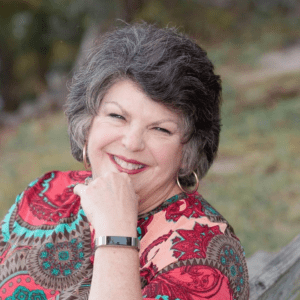
Anna Anderson
“It starts with letting people know they are being valued and being heard,” said Anderson, field personnel who serves through Together for Hope, CBF’s rural development initiative, in the same eastern North Carolina region where she works to address poverty in several communities.
Welcoming the stranger in the Northern California context includes stating, “I am so happy that you are here,” Sample said. “I want to be a welcoming presence to all the internationals we are engaged with.”
Embracing the arrival of Hispanic immigrants in Northern Virginia includes remembering many have escaped traumatic situations in their home countries, Smith said. “We try to be welcoming in ways that acknowledge who they are and that they are persons of dignity and worth.”
But it often can be challenging to extend that welcome, the panelists said.
Assumptions that migrants are the poorest of the poor in their home countries or that they are all uneducated because they don’t speak English create barriers between them and those who would help, Smith said.
“We try to be welcoming in ways that acknowledge who they are and that they are persons of dignity and worth.”
The truth is many were small-business owners, teachers, professors and professionals back home, she explained. “We need to see (immigrants) as equals and children in the kingdom of God, just as we are.”
Americans who live in poverty often find it difficult to accept compassion because of deep-seated feelings of shame and guilt for their situations, Anderson said. Race also can be a hindrance among the mostly Black populations she serves. “They feel they don’t deserve better internet, food or safe housing.”
Sample said he has to overcome the distrust refugees and immigrants have of the government and their fears of deportation even when in the U.S. legally. “Just being in conversation with them can put their minds at ease,” he said.
Building community between people of faith to serve internationals works much the same, he added. “One of the ways we build community is by bringing people from different churches and denominations to be involved in our ministry initiatives.”
Community also may be formed with immigrants by teaching, feeding and “loving on” their children, Smith said. “If you care about children and read to them and help them with their homework — all of the things our churches are equipped to do — the parents are going to get on board.”
What churches must not do is talk down to immigrants or assume a charity mentality by giving them sub-par clothing, furniture and other items, she said. “If you don’t want it, don’t give it. Give them good-quality things. Don’t assume newcomers who don’t speak English don’t have anything to offer.”
Related articles:
Scholar explores the ways migration changes people’s attitudes, beliefs and religion
Pandemic has accelerated needed changes in churches, panelists report
Pastors ponder pandemic preaching problems — and how they’ve survived

